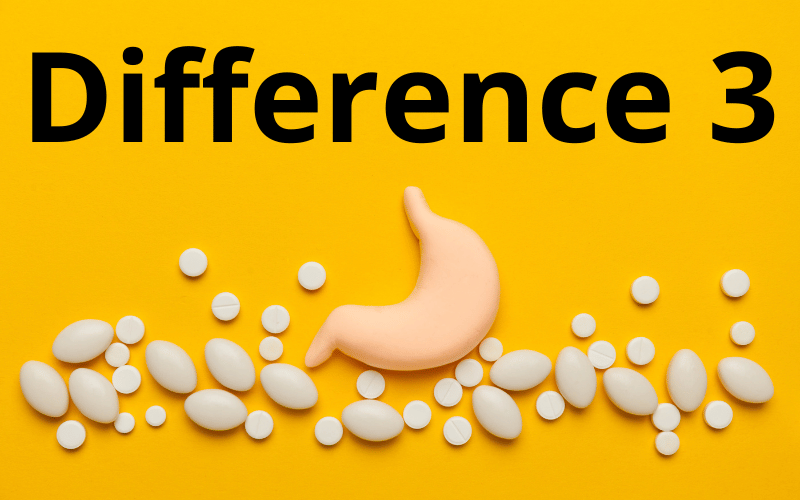Difference 3: Treatment Approaches

Gastritis
When the symptoms of gastritis make their presence felt, the first step toward healing is understanding the cause. It’s not about masking symptoms; it’s about addressing the root of the problem to provide genuine relief. For immediate respite, antacids are the go-to. These nifty over-the-counter solutions neutralize stomach acid, providing a temporary relief from that burning sensation or pain. They form a protective layer over the stomach lining, offering a buffer against the harsh acidic environment.
When gastritis digs its heels in, stronger intervention might be needed. Enter medications like proton pump inhibitors (PPIs) and histamine (H2) blockers. These aren’t just fancy terms. They reduce the amount of acid the stomach produces, allowing the inflamed lining a chance to heal. For those with gastritis stemming from an H. pylori infection, the game plan changes. It’s not just about acid control. It’s about evicting these unwanted bacterial guests. A combination of antibiotics, coupled with acid suppression therapy, is typically the recommended route.
Beyond medications, lifestyle choices play a pivotal role. A shift towards a more stomach-friendly diet—low in spicy, acidic, or fried foods—can make a world of difference. Equally, reducing or eliminating alcohol and caffeine intake and minimizing NSAID usage can steer one away from potential gastritis flare-ups.
Gastroenteritis
Given the severity of dehydration risks associated with gastroenteritis, the initial focus is on fluid replacement. Oral rehydration solutions, available over the counter, are formulated to replenish lost fluids and essential salts. They’re a crucial ally, especially in cases with rampant diarrhea and vomiting. While it’s essential to let the body flush out the causative agents, relentless diarrhea can be a cause for concern. Antidiarrheal medications might be recommended in certain cases to slow things down and offer some relief.
The inflamed gut during a bout of gastroenteritis is like a wounded soldier—it needs gentle care. A bland diet, focusing on easily digestible foods like bananas, rice, applesauce, and toast (often dubbed the BRAT diet), can soothe the irritated intestines. There’s growing evidence to suggest that probiotics, essentially good bacteria, can aid in the recovery process. By reinforcing the gut with beneficial microorganisms, one can potentially reduce the duration and severity of gastroenteritis symptoms.
While most cases of gastroenteritis are self-limiting, it’s crucial to recognize when professional help is needed. Persistent high fever, signs of severe dehydration, bloody stools, or an inability to retain any fluids are all red flags that warrant immediate medical attention. (3)